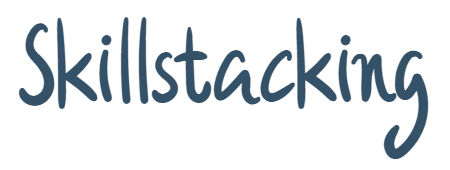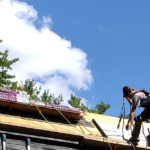COVID has resulted in a sudden drop in interest rates. In times of fear, many people are paralyzed and end up doing nothing. At this time, there are things you can do, and things you may want to avoid (like mortgage deferrals). Read on for tactics that you can consider incorporating into your overall personal financial position.
Early Renew and Get a Lower Rate
Essentially you go to the bank and say you want to sign up for 5 more years. They cancel your mortgage and give you a blended rate that is lower than what you are paying now. Call them, ask them.
Cancel Your Mortgage and Get a Lower Rate
You are always able to cancel a mortgage, but this typically comes with a cancellation fee. Here are ways to reduce or eliminate a cancellation fee:
- Use another lender. Many times they will pay for some or all of the cancellation fee.
- Make a lump sum payment. Making a lump sum payment of 15% (for example) will reduce your cancellation fee by 15%. Add it back into the mortgage when done. If the anniversary of the mortgage is coming up, you can do 2×15%, on on the day before, and one on the day after.
- Use the bank’s rules. Make a 15% payment, then early renew, then make another 15% payment, and then cancel. Your fees will be much lower in this case, but will be a lot of paperwork, and the bank may not like you…
- Get Cash Back. In certain markets (check your province/state), when not using a mortgage broker, you can sometimes register a friend who is a realtor, contractor, etc (ask you bank) as the referring agent, and a commission is paid to them. Make a deal with that person, and use the sum to pay off the mortgage.
Use a Variable Rate and Pay at the Fixed Rate
There is temptation when interest rates are low to “lock them in” to a fixed rate. A strategy to consider is to take the variable rate and pay at the fixed rate. If the variable rate results in a payment of $1,000, and a fixed rate results in a payment of $1,100, then take the variable rate, and pay the $1,100 every month. Here are the most basic pros and cons:
- A little bit richer: You pay less interest, and more principal.
- A little bit more flxible: If your cash position becomes tighter, you can always make the lower payments.
- A little bit more work: You need to monitor interest rates, and consider switching to fixed when interest rates start to climb.
Get a Combination Mortgage and Line of Credit (LOC)
Mortgages require interest and principal payments and typically have a lower rate than LOC’s. LOC’s require interest-only payments and typically have a higher variable rate than mortgages. If you are unsure about your liquidity, get a combination of mortgage and LOC. For example, on a $200,000 mortgage, you could take $150,000 in mortgage, and $50,000 in LOC. During the lifetime of owning the property, the following can happen:
- More liquidity: Principal that you pay on the mortgage becomes available on the LOC.
- Emergency Funds: The LOC becomes your emergency reserve, if your property needs major renovations.
Miscellaneous Rapid-Fire Bonus Tips
- Credit Card and High Interest Debt: Move your debt from your credit cards to your properties if you can.
- Loan to Value: If the bank offers you to take money out, be very cautious, as your mortgage payments will increase.
- Debt Coverage Ratio: Look at your ability to pay your debt versus your other sources of income.
- Cash Flowing Investment Properties: Make sure they cash-flow, and stress-test them for higher interest rates when you go variable.
- Speculative Properties: If you bought properties hoping they will go up in value (don’t), but be very watchful for those.
Mortgage Deferrals. A Last Resort
Many banks are offering mortgage deferrals, and in my opinion, they are an option of last resort. It may be more beneficial to restructure your debt (as described above) with more flexible lending arrangements. My heart goes out to those who absolutely have to take it, but here are the consequences:
- It is just a deferral. The interest itself is still due, an accrues over time.
- It is unknown how your credit score will be affected.
Black Swan (COVID) Ideas
If you manage to reduce your debt load in these early days of a crisis, and your income remains intact and stable, or you can find joint venture partners that have this kind of stability, then there will likely be investment opportunities. People are going to be hurting in the coming months and looking for buyers for their properties. If your financial house is in order, then you will be able to provide that service for those looking to sell. Entering a market when fear abounds is not for the faint of heart. So, many of the basics of investing in real estate are more important than ever.
- Buying Real Estate with No (Little) Cash Down
- 3 Ways You Make Money Renting Out a House
- Finding Your Ideal Business Partner
Conclusion
When interest rates suddenly drop dramatically, it can be a good time to reassess and strengthen your debt position. It can also be an opportunity to invest further. Tread lightly, calculate, and then act. Remember that doing nothing is a decision as well. Do something, and improve your financial position during this time. Good Luck!







Trackbacks/Pingbacks